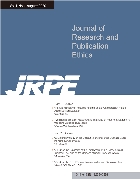- 권한신청
- E-ISSN2733-7146
- KCI Candidate
Author's Ethical Behavior for Conducting Environmental Education-Related Research
Abstract
Purpose: Environmental education-research mainly focuses on the relationship between people and the environment. The purpose of this study is to focus on elaborating on the various ethical behaviors crucial in environmental education-related research. The study utilized a literature review of initial studies conducted on the topic as the primary source of information. Research design, data and methodology: This study has selected the literature content analysis as a research design because this analysis tool provided the present author numerous and tremendous previous works in the realm of authors' ethical issues within environmental education area and prior research already confirmed the high quality of an instrument. Results: Based on the investigation of the literature analysis, the findings emphasize that, while making any choice regarding environmental studies and research, authors and researchers must consider how ethical behavior might be applied to the particular circumstance. There are three ethical behaviors for authors and they can be founded in the section 3 of this study. Conclusions: As a conclusion of this study, three major subfields of environmental ethics-resource ethics, animal ethics, and ethics of nature protection-serve as the foundation for ethical behavior in research on environmental education. The ethical treatment of scarce resources, deployable resources, and environmental media.
- keywords
- Author's Ethical Behavior, Research Ethics, Environmental Education, Content Analysis Approach
- 다운로드 수
- 조회수
- 0KCI 피인용수
- 0WOS 피인용수














